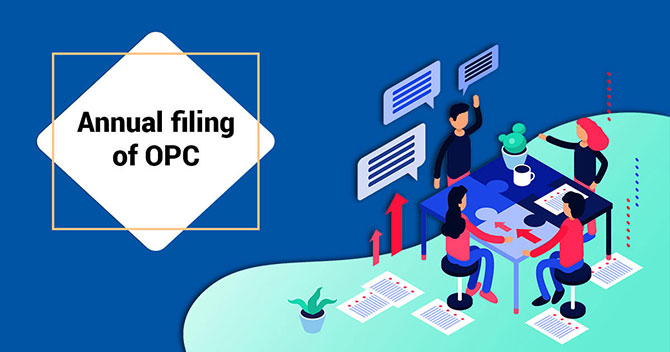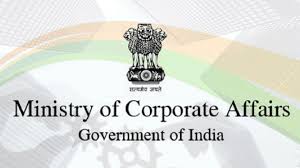What is a Trademark? Types, Functions, and the e-Filing Process in India

Introduction In today’s competitive business environment, understanding what a trademark is is more important than ever. A trademark not only helps protect your brand’s identity but also ensures legal protection, differentiating your products or services from others. Whether you are a startup looking to establish your brand or a large corporation managing a global identity, securing your trademark is crucial for long-term business success. What is a trademark? Simply put, it is a unique identifier—a name, logo, symbol, sound, color, or slogan—that legally distinguishes your brand in the marketplace. It serves as a mark of quality and authenticity, offering protection against imitation or infringement by competitors. Trademarks help businesses build trust, attract loyal customers, and enhance their market presence. In this article, we’ll explore the types of trademark, their functions, and provide a step-by-step guide to the e-filing trademark process in India, so you can safeguard your brand and business effectively. A trademark is a sign, symbol, word, or combination used to distinguish one business’s products or services from others. Simply, it serves as a legal tool to protect the identity and image of your business. What is a trademark used for? It allows businesses to stand out in a crowded market by providing a unique identifier for their goods or services. A trademark can take various forms, including: Word Marks: A trademark consisting of words, letters, or numbers. Device Marks/Logos: Graphics or symbols that represent the business. Slogan Marks: Catchphrases or taglines associated with the brand. Sound Marks: A distinctive sound associated with a product or service. In essence, a trademark protects your brand identity and ensures that no one else can legally use a symbol or name that could confuse consumers. For instance, the Nike swoosh or the Apple logo are iconic trademarks that represent the companies’ brands. The functions of a trademark go beyond just offering legal protection for your brand. Here are the primary roles a trademark plays in your business: Brand Identity and Differentiation: One of the most important functions of a trademark is to differentiate your products or services from competitors. A trademark makes your brand easily identifiable and gives it a unique identity in the marketplace. Trust and Recognition: A trademark allows customers to easily recognize your brand. As your business grows, consumers will come to associate the trademark with quality, reliability, and trustworthiness. Legal Protection from Imitation: By registering your trademark, you gain exclusive rights to use it, preventing others from copying or imitating your brand. This legal protection helps you avoid confusion in the marketplace and safeguard your brand’s reputation. Business Valuation and Licensing: A trademark is an asset. As your brand becomes more valuable, your trademark may also increase your business’s worth. It can be licensed or sold, generating additional revenue streams. These functions show why a trademark is much more than just a logo—it’s a crucial element for building a successful and sustainable business. Trademarks come in various forms, each serving a different purpose in protecting different elements of your business. Let’s take a closer look at the types of trademark and kinds of trademark that can be registered in India: Word Mark: A word mark is a trademark that consists of a word, letter, or combination of words that identifies your brand. Examples include Coca-Cola, Google, and Amazon. Device Mark / Logo: A logo or graphic design is another form of trademark. These are distinct symbols or visual elements representing your brand. For instance, Nike’s swoosh or McDonald's golden arches are device marks. Sound Mark: A sound mark is a unique sound or jingle associated with a business. For example, the Intel jingle or NBC’s chimes are registered as sound marks. Color Mark: This type of trademark protects a specific color or combination of colors used in your brand. Tiffany’s signature blue is an example of a color mark. Shape Mark: If the shape of your product or packaging is unique and distinctive, it can be registered as a shape mark. An example would be the distinctive Coca-Cola bottle shape. Motion Mark: A motion mark protects animated trademarks, like the Google homepage animation or the Pepsi commercial featuring a moving bottle. Slogan or Tagline Mark: This is a phrase or slogan associated with your business. A famous example is Nike’s “Just Do It”. Each of these types of trademark and kinds of trademark provides specific legal protection to your brand elements, ensuring that your business is legally shielded from competitors copying your unique identifiers. Securing a trademark offers several key benefits for your business, which go beyond just legal protection: Legal Protection: The primary reason to register a trademark is to protect your brand legally. A registered trademark gives you exclusive rights to use that mark for your products or services, preventing others from using similar marks that could cause confusion. Adds Credibility to Your Brand: A trademark establishes your business as a serious and professional entity. It reassures customers that you have invested in protecting your brand, fostering trust and loyalty. Prevents Infringement: Without a registered trademark, your business risks allowing competitors to use a similar name or logo, potentially confusing your customers and damaging your reputation. Trademark registration prevents others from imitating your identity. Increases Brand Value: A trademark adds value to your business. It makes your brand more attractive to investors, potential partners, and franchise opportunities. Over time, your trademark can become a valuable asset, representing your business’s goodwill and reputation. In conclusion, a registered trademark isn’t just a legal tool—it’s an investment in the long-term success of your business. In India, the process of e-filing trademark is efficient and easy to navigate, thanks to the IP India portal. Below is a step-by-step guide for registering a trademark online: Trademark Search: Conduct a trademark search on the IP India portal to ensure that no other business is using the same or similar trademark. Choose the Right Class: Trademarks in India are categorized into 45 classes, based on the type of goods and services. Choose the class that corresponds to your business. File TM-A: Submit your application for trademark registration by filing TM-A online on the IP India portal. Upload Documents & Pay Fee: Upload your trademark design, logo, or word mark along with supporting documents and the application fee. Government Examination: The Trademark Office will examine your application for any issues or objections. Publication in Trademark Journal: If there are no objections, your trademark will be published in the Trademark Journal for a period of four months, allowing others to raise any objections. Registration Certificate: If there are no objections, your trademark will be registered, and you will receive a registration certificate. E-filing trademark is the most efficient and cost-effective way to protect your brand. It is faster and more secure than traditional methods, allowing you to track the status of your application in real time. When registering a trademark, it’s important to avoid common mistakes that could hinder the process: Not Conducting a Trademark Search: Failing to check if your desired trademark is already in use can result in delays or rejection. Using Generic or Descriptive Terms: Generic or descriptive names are not eligible for trademark protection. Make sure your trademark is distinctive. Delaying Registration: Don’t wait until your brand becomes popular before registering your trademark. It’s important to protect your intellectual property from the very beginning. Understanding the difference between trademarks, copyrights, and patents is essential for business owners. Here’s a quick overview: Trademark: Protects brand names, logos, slogans, and other identifiers. Copyright: Protects original works of authorship, such as literature, music, and artwork. Patent: Protects new inventions or technological advancements. While these intellectual property rights serve different purposes, they all aim to protect creative works and ideas. Trademark law in India is governed by the Trade Marks Act, 1999, which provides the framework for registering and protecting trademarks. Once registered, a trademark is valid for 10 years, after which it can be renewed indefinitely. To sum up, what is a trademark? It’s the legal shield that protects your brand’s identity, reputation, and value. By securing a trademark, you ensure that your business remains distinct in the marketplace and is safeguarded from unauthorized use. Whether you’re just starting your business or have an established brand, registering a trademark is one of the best investments you can make. What is a trademark? A trademark is a unique symbol, word, or combination used to identify and distinguish your business's products or services from others. Why should I register a trademark? Registering a trademark gives you exclusive rights to use that mark and provides legal protection against infringement by others. What are the types of trademark? Common types of trademarks include word marks, device marks (logos), sound marks, color marks, shape marks, and slogan marks. What is the process of e-filing a trademark? The process includes conducting a trademark search, filing the application online, submitting documents, paying the fee, and waiting for the trademark to be registered. How long does a trademark last? A trademark in India is valid for 10 years from the registration date and can be renewed indefinitely. Can a trademark be transferred? Yes, a trademark can be sold, licensed, or assigned to another party. Can I use a trademark without registration? While you can use a trademark without registration, registration provides legal protection and exclusive rights, making it a safer option. What happens if someone infringes my trademark? If someone uses your trademark without permission, you can take legal action to stop the infringement and claim damages.What is a Trademark?
Functions of a Trademark
Types & Kinds of Trademark
Why Register a Trademark?
The Process of e-Filing Trademark in India
Common Mistakes to Avoid
Trademark vs Copyright vs Patent
Trademark Law in India: Quick Overview
Conclusion: A Trademark is Your Brand’s Armor
Frequently Asked Questions (FAQs)

























.jpg)
.jpg)



.jpg)
.jpg)
.jpg)
.jpg)










